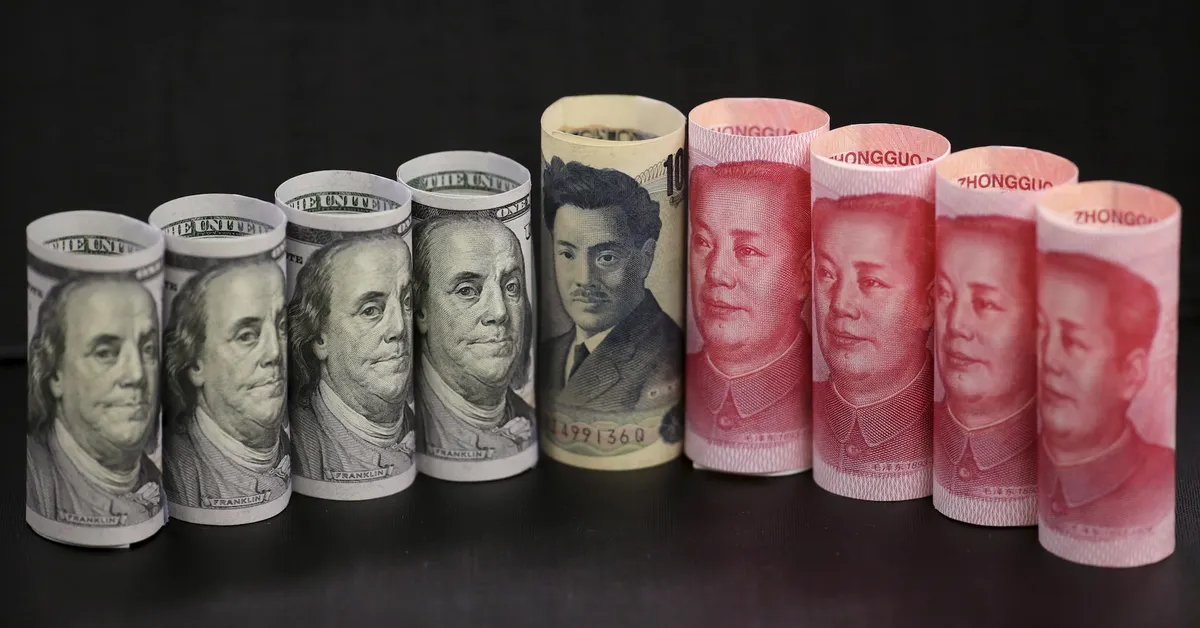
On March 4, 2023, U.S. President Donald Trump made significant statements regarding the currency policies of Japan and China. He emphasized that these nations could no longer continue to devalue their currencies without facing repercussions, asserting that such actions are unfair to the United States. This warning comes at a time when Trump's new 25% tariffs on imports from Mexico and Canada have taken effect, alongside a substantial increase in duties on Chinese goods to 20%. These developments signify a fresh escalation in global trade tensions.
Following Trump's comments, the Japanese yen briefly appreciated, climbing to 148.60 per dollar from approximately 150 on the previous day. During a press briefing at the White House, Trump stated, "I've called President Xi, I've called the leaders of Japan to say you can't continue to reduce and break down your currency. You can't do it because it's unfair to us." He further explained that the devaluation makes it challenging for U.S. manufacturers, citing companies like Caterpillar that struggle to compete when foreign currencies are weakened.
In response to Trump's assertions, Japanese Finance Minister Katsunobu Kato clarified that Japan is not pursuing policies aimed at weakening the yen. Kato reiterated Japan's commitment to its basic stance on currency policy, which aligns with G7 countries and has been reinforced through discussions with U.S. Treasury Secretary Scott Bessent. Prime Minister Shigeru Ishiba also echoed this sentiment in parliament, asserting that Japan is not engaging in a currency devaluation strategy.
Historically, Trump has accused both Japan and China of intentionally weakening their currencies during his presidency. Throughout his first term, a series of tariff announcements between the U.S. and China resulted in the Chinese currency depreciating by over 12% against the dollar from March 2018 to May 2020. Recently, however, China has shifted its focus towards stabilizing the yuan, which appreciated against the dollar as the central bank guided the currency higher, a move analysts believe is aimed at reducing tensions with Washington.
Analysts like Chang Wei Liang, a currency and credit strategist at DBS, argue that both China and Japan are aligned with the U.S. in not wanting excessive weakness in their currencies. They suggest that while a weak yen may benefit Japanese exports, the government has been cautious about the potential market volatility that Trump's comments could trigger, which might undermine a fragile economic recovery.
Japan's top currency diplomat, Atsushi Mimura, acknowledged the recent rebound of the yen, attributing it to the nation's strong economic fundamentals and the prospect of imminent interest rate hikes by the central bank. Japan has been advocating for a consensus among G7 and G20 nations regarding the need to avoid excessive volatility in currency markets, which Tokyo views as a justification for intervention when necessary.
Trump's criticism of a weak yen poses challenges for the Bank of Japan (BOJ) as it considers its timing for potential interest rate hikes. Some analysts speculate that Trump's dissatisfaction with a weak yen could incentivize the BOJ to implement further interest rate increases. Currently, Japan cannot engage in yen-buying operations at prevailing currency levels, which places pressure on the BOJ to raise rates.
Investors may interpret Trump's remarks as a signal to buy yen in anticipation of the BOJ potentially raising interest rates twice within the year. After concluding a decade-long stimulus program last year, the central bank has seen inflation surpass its 2% target for nearly three years, prompting discussions about additional rate hikes following an increase to 0.5% in January. A majority of economists surveyed by Reuters predict another rate hike this year, likely in the third quarter, to 0.75%.
As the global economy navigates these complex dynamics, the interplay between currency policies, tariffs, and interest rates will be critical in shaping the future of international trade relations.